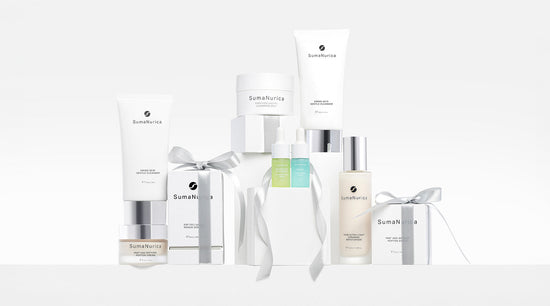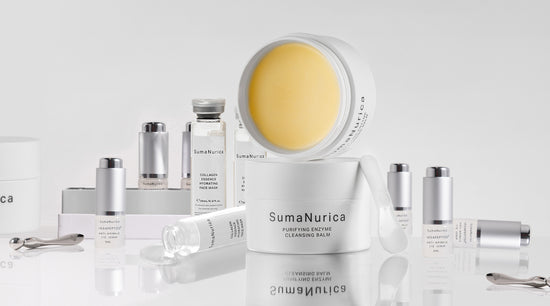Difference between chemical and mineral sunscreen
Sunscreen is the number one anti-ageing product you can use, and after 30 years old, using an SPF should be a part of your everyday skincare routine to minimise the aging process, damage caused by the sun and diseases.
There are two types of sunscreens on the market: "chemical” and physical” sunscreen. They both protect you from overexposure to the sun’s damaging rays, but what are the differences? We’ll explain in detail to ensure you’re making the right choice in protecting your skin.
Physical sunscreen
Sometimes known as mineral sunscreen, creates a physical barrier on your skin to “physically” shield the sun’s rays. This technique in sun protection is broad spectrum and reflects UV radiation away from your skin while preventing UV-related damage such as sun spots and wrinkles.
The main ingredient is zinc oxide, and titanium oxide is recommended for people with sensitive skin, acne, or children. They also work by protecting your skin through windows and preventing pigmentation and collagen breakdown. Another reason why it is urged to wear skincare every day, even if you plan on spending your time indoors.
However, they can be thicker and harder to spread around, sometimes leaving a chalky finish. They aren’t always as water-resistant as chemical sunscreens, so it is best to reapply frequently if you are swimming or sweating.
Chemical Sunscreen
Chemical sunscreen penetrates your skin, and its primary function is to absorb the skin’s rays before they can penetrate your dermis. They are formulated in a way that doesn’t need to be as thick as a physical sunscreen; they spread more quickly as there is no need for active ingredients to be in high concentrations.
Ensure you pick compounded sunscreen formulas with different chemicals to ensure broad-spectrum protection. There have been tests to prove that chemical sunscreen statistically performs better on how long they protect the skin from UV rays.
However, some chemical formulas can cause allergic reactions and irritate the skin, so it’s best to do a patch test before trying.
Bottom line
Either way, no sunscreen is better than the other – the more important thing is that you are using a product with at least SPF 50+ to ensure your skin is protected from the sun’s damaging rays.
Loved learning about the world of skincare? Find more articles like this one in our learning center here.
Want to start your SumaNurica skincare journey? Shop our Collagen Essence Hydrating Face Mask here, or shop the entire SumaNurica range here.
Question not answered? Or want to speak to one of our friendly skincare experts? Head to our live chat in the bottom right corner and a skin specialist will be there to assist with all your skincare questions and concerns.







